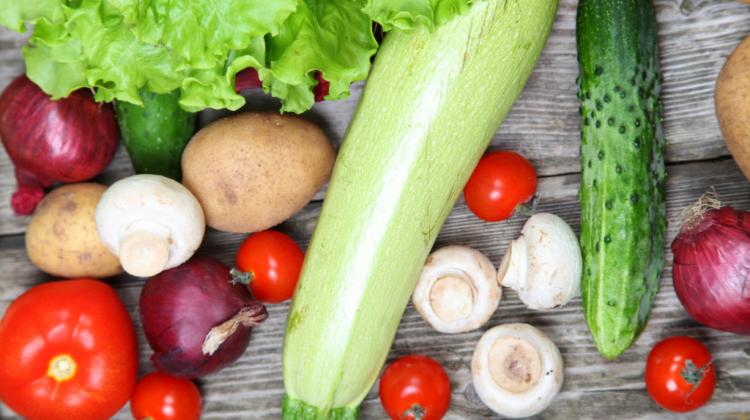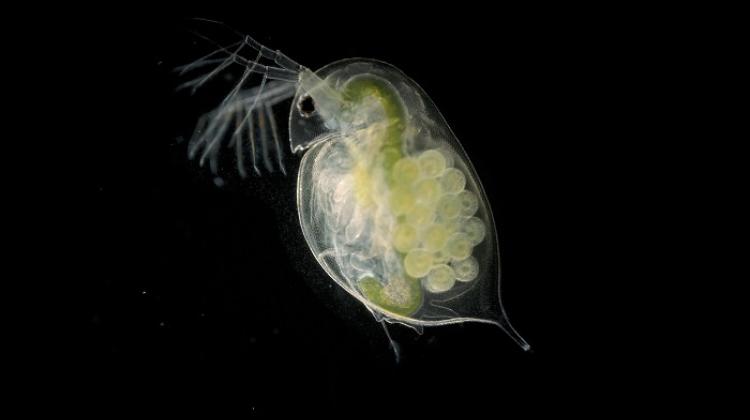Expert: plant diseases source of huge losses of food

Fungi, viruses and bacteria cause plant diseases, which contribute to huge losses of food. Without chemical protection methods, shortage of food in the world would be much larger - said in an interview with PAP Prof. Malgorzata Mańka, one of the organizers of the 9th Conference of the European Foundation for Plant Pathology, held in Krakow under the theme "Healthy plants - healthy people".
According to the professor, every year plant diseases caused by fungi, bacteria and viruses destroy 30 percent yields worldwide in the fields and gardens, and another 30-40 percent after harvesting crops, in storage (grains, vegetables, fruits may be kept in storage even for a few months before they are sold).
Most plant disease are caused by fungi which grow into the tissue and proliferate inside. They rob the plant of water, nutrients and building blocks, and some also produce harmful mycotoxins (fungal toxins). They accumulate in cereal grains which, after the growing season, rich in moisture and rain, and favorable for fungi, have been massively infected by pathogens.
Sick plant can not fully develop. Saturated with various mycotoxins, but also with a variety of bacterial products, is not only a poor, but also dangerous food product. "Every plant sick due to infection by fungi, viruses or bacteria, contains substances harmful for both the plant, and human health" - noted Prof. Malgorzata Mańka.
Plants consumed with mycotoxins can cause allergies, narrowing of blood vessels, eating disorders, disorders in cattle breeding (common in animals fed with grain containing mycotoxins).
Fortunately - the professor emphasized - very serious cases of poisoning in humans and animals are not common, although it is difficult, also for financial reasons, to prepare accurate statistics for the problem. It\'s also quite difficult to prove that a given ailment has been caused by sick unhealthy plant.
The most effective protection of plants against diseases is chemical protection. It usually consists in spraying with plant protection products. "This method has widespread opposition around the world, but it is the most effective form of protection. Without it, a shortage of food in the world would be much larger. Even in developed countries like Poland we would have problems" - said the professor and stressed that properly applied spraying does not endanger human health, and it does not destroy plants, only dangerous pathogens.
Another method of preventing plant diseases is so-called breeding for resistance. This form of protection has been developed by growers for many years. It involves the cultivation of new varieties of selected plant species (wheat, carrots, tomatoes, apples). New types of plants are more resistant to pathogens than ordinary, common varieties of the same plant.
According to Prof. Mańka, the condition of plant "health" in Poland is not in bad. However, in Europe this year the grains might be of lower quality than last year. The reason for this are the rains that have contributed to the moisture that supports the growth of fungi.
Conference of the European Foundation for Plant Pathology is organized every two years, each time in a different city. The last meeting in Poland was held 20 years ago, in Poznań.
The conference in Kraków was attended by approx. 300 participants from 44 countries - mostly European, but also other parts of the world, including from Australia, Canada, USA, South Korea, Saudi Arabia, Iran, the United Arab Emirates, South Africa.
The topics of speeches and discussions included new pathogens and changes in their pathogenicity, the environmental impact on plant diseases in agriculture, horticulture and forestry.
European Foundation for Plant Pathology was established in 1990. Its members are approx. 20 scientific societies dealing with plant diseases. In total, the foundation brings together approx. 5 thousand plant pathology experts.
The 9th conference in Kraków was co-organised by the Polish Phytopathological Society and the University of Agriculture in Kraków.
PAP - Nauka w Polsce, Beata Kołodziej
bko/ agt/ mrt/
Przed dodaniem komentarza prosimy o zapoznanie z Regulaminem forum serwisu Nauka w Polsce.















